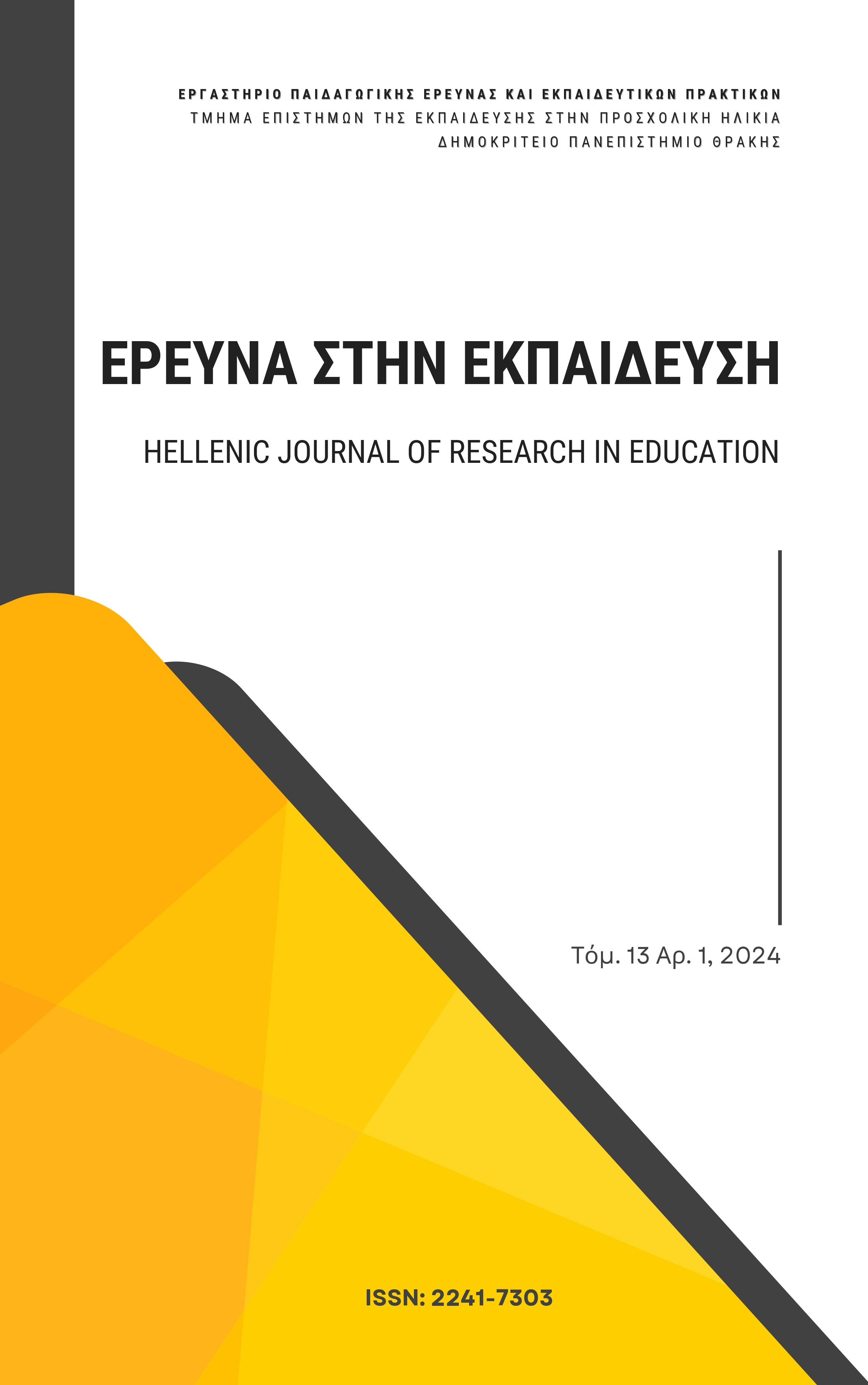Στρεσογόνοι παράγοντες, επαγγελματική εξουθένωση και ανθεκτικότητα στο επάγγελμα του εκπαιδευτικού: Διερεύνηση των μεταξύ τους σχέσεων και του ρόλου των δημογραφικών χαρακτηριστικών

Περίληψη
Σκοπός της έρευνας ήταν η μελέτη της επίδρασης των στρεσογόνων παραγόντων στην επαγγελματική εξουθένωση των εκπαιδευτικών καθώς επίσης και η πιθανή σχέση ανάμεσα στην ανθεκτικότητα και στην επαγγελματική εξουθένωση. Ταυτόχρονα, οι στρεσογόνοι παράγοντες στο επάγγελμα του εκπαιδευτικού, η επαγγελματική εξουθένωση και η ανθεκτικότητα εξετάζονται σε συνάρτηση με δημογραφικά χαρακτηριστικά. Στην έρευνα συμμετείχαν 844 εκπαιδευτικοί από την πρωτοβάθμια και δευτεροβάθμια εκπαίδευση της Κύπρου και Ελλάδας. Οι συμμετέχοντες συμπλήρωσαν τα παρακάτω ερωτηματολόγια: (1) Ερωτηματολόγιο Επαγγελματικής Εξουθένωσης, (2) The Greek Hardiness Resilience Gauge και (3) Ερωτηματολόγιο Πηγών Επαγγελματικής Έντασης. Τα αποτελέσματα της έρευνας καταδεικνύουν ότι τα υψηλά επίπεδα επαγγελματικής εξουθένωσης σχετίζονται με χαμηλά επίπεδα ανθεκτικότητας και ότι οι τρεις διαστάσεις της ανθεκτικότητας (πρόκληση, δέσμευση, έλεγχος) μειώνουν την επιρροή των στρεσογόνων παραγόντων στην επαγγελματική εξουθένωση. Αναδείχθηκαν, επίσης, διαφορές στις μεταβλητές της μελέτης λόγω της επιρροής συγκεκριμένων δημογραφικών χαρακτηριστικών. Τα αποτελέσματα της μελέτης συζητώνται στο πλαίσιο της σύγχρονης βιβλιογραφίας.
Λεπτομέρειες άρθρου
- Πώς να δημιουργήσετε Αναφορές
-
Γεωργίου Ε., & Κάμτσιος Σ. (2024). Στρεσογόνοι παράγοντες, επαγγελματική εξουθένωση και ανθεκτικότητα στο επάγγελμα του εκπαιδευτικού: Διερεύνηση των μεταξύ τους σχέσεων και του ρόλου των δημογραφικών χαρακτηριστικών. Έρευνα στην Εκπαίδευση, 13(1), 125–147. https://doi.org/10.12681/hjre.36445
- Τεύχος
- Τόμ. 13 Αρ. 1 (2024)
- Ενότητα
- Άρθρα

Αυτή η εργασία είναι αδειοδοτημένη υπό το CC Αναφορά Δημιουργού – Μη Εμπορική Χρήση – Παρόμοια Διανομή 4.0.
Τα πνευματικά δικαιώματα των άρθρων του περιοδικού ανήκουν στους συγγραφείς. Τα άρθρα διατίθενται με άδειες Creative Commons CC-BC-SA 4.0


